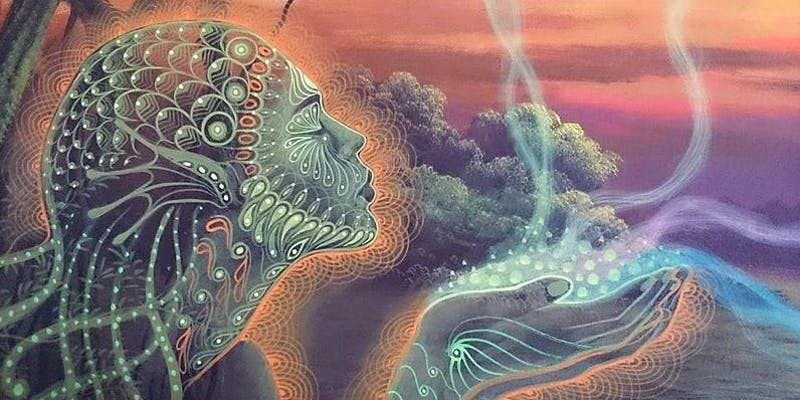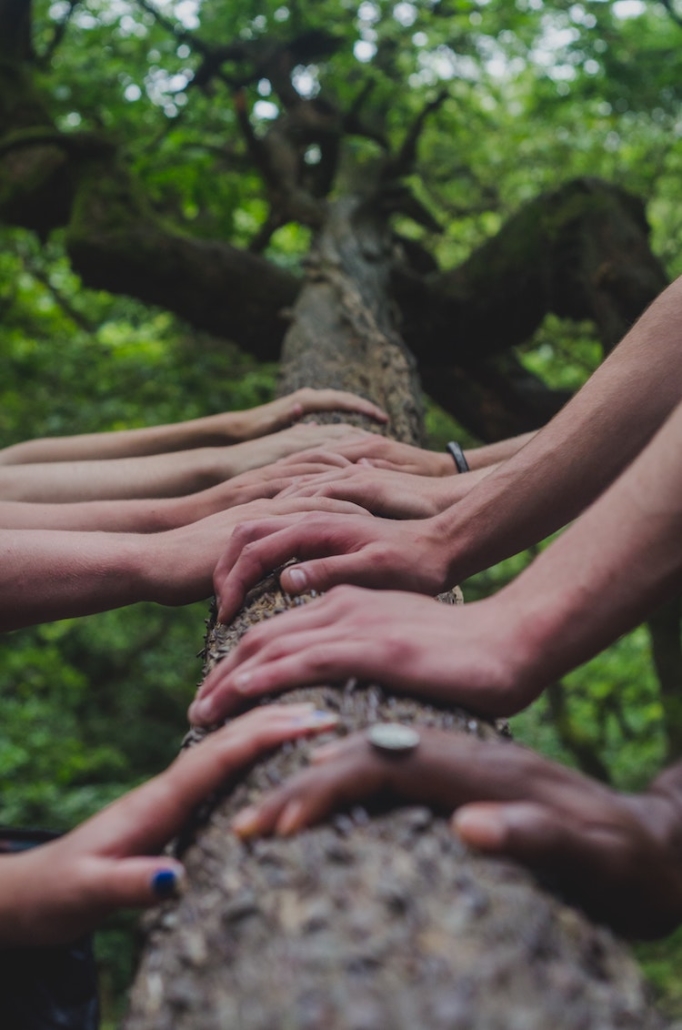This article was originally published on Psychedelic Spotlight, and appears here with permission.
Could ayahuasca be the key to erasing conflict between Israel and Palestine?
New research from Imperial College London has investigated whether the psychedelic ayahuasca could be used in peacebuilding between conflict regions such as Israel and Palestine.
The study, published in Frontiers of Pharmacology, examines the relational processes between Jewish-Israelis and Arab-Palestinians when drinking ayahuasca together in a group setting. This timely piece of research may pave the way for illuminating the most important aspects that can foster better relations between conflicting groups.
What is Ayahuasca?
Ayahuasca is a psychedelic brew used in shamanistic rituals in South America. It combines two plants found in the Amazonian basin: Psychotria viridis, which contains the psychoactive substance DMT, and the Banisteriopsis caapi vine, which allows the DMT to become orally active.
The DMT-containing plant medicine induces a particularly intense psychedelic experience; strong hallucinations and visions are common, while vomiting and elimination” purging” are also hallmarks of an ayahuasca session.
Contemporary psychedelic research has often taken an individualistic approach to the journey— psychedelic-assisted psychotherapy in the West is most often an intense and personal experience, with an individual taking a psychedelic in the presence of therapists.

However, ayahuasca is traditionally taken in group settings. As people travel around the world to journey with ayahuasca, sometimes groups of Israelis and Palestinians take the psychedelic plunge together. This provided a window of opportunity for the team of researchers to investigate whether taking ayahuasca together could affect the way that Jewish-Israelis and Arab-Palestinians could relate to each other, thus potentially identifying a catalyst for peace.
Dr. Leor Roseman from Imperial College London led a team of researchers, including Palestinian activist Antwan Saca, and Natalie Ginsberg, the policy director of MAPS in the groundbreaking study.
Journeying with Ayahuasca Together
While using psychedelics to build peace may sound far-fetched, there are strong foundations for setting up this kind of study. Roseman highlighted, “In theory, psychedelics have the potential to bring more empathy and understanding to political processes. This is their potential for creating harmony, connection, and understanding of the other side.”
The participants in the study were 18 Israeli-Jews and 13 Palestinians who attended ayahuasca ceremonies with participants from both groups. The ceremonies themselves weren’t intended to build peace, but rather their focus was primarily on developing and fostering a sense of inner-spirituality.
The ongoing Israeli-Palestinian conflict runs deep, with multiple issues underscoring the tension between the two groups. The relational differences between the two groups is immediately apparent when these ceremonies start. “Many times Israeli and Palestinians sit separately by choice,” Roseman said.
To discover the potential role that ayahuasca has in breaking down the boundaries between Israelis and Palestinians, the researchers interviewed the 31 individuals following their participation in a ceremony. The interviews were then analysed, and key themes of the psychedelic experience were uncovered, which likely play a significant role in fostering unity.

Photo by Shane Rounce on Unsplash
Being One and Bearing Witness to the ‘Other’
The researchers found two main themes in their interviews. The first was based on the feeling of unity and oneness. The psychedelic experience is often punctuated by feelings of the boundaries between the self and other dissolving, what’s known as ego death. However, the researchers saw that this dissolution of boundaries may also manifest itself at the group level. One Arab-Palestinian woman summarised it:
“You reach that point when you don’t see this as Jewish or Arabic … there’s nothing, no language, no religion, no gender, nothing.”
The researchers seemed to find that the ayahuasca managed to dissolve the identities of participants, facilitating a connection on a much deeper level.

The second main theme was a connection based on difference. This theme seemed to work in synergy with the first; experiencing oneness facilitated togetherness, while recognising the difference between Israelis and Palestinians fostered appreciation for the ‘other’.
This ‘difference-based’ connection was often carried through powerful moments of music or prayer. This capacity for groups to express themselves transcended the use of language, and allowed one group to become comfortable within the group setting (by expressing themselves), and fostered a sense of awe, reverence, and inclusion from the other.
The transformational power of ayahuasca to allow people to change their perception of the other group was astonishing. One Jewish-Israeli man was incredibly moved during his journey:
“Suddenly you hear the language you most hated, maybe the only language you really hated, and suddenly it is sending you into love and light, and that’s the way it always is. Whatever the song, whatever the words, you melt- that’s it that’s our peace, to sit and listen to a song in Arabic, that’s peace.”

Integrating Into Togetherness
This study spotlights the powerful potential that psychedelics have to facilitate togetherness and harmony—even when the conflict runs extremely deep. Roseman says that, while psychedelics may not be the main answer, the findings from the study may prove useful for future relational issues:
“I would stress that psychedelics are not a solution in themselves, but potentially a tool which could help. They can create a strong group bonding, and they can help groups address conflicting political issues through new insights and revelations which can occur with psychedelics.”
Roseman further highlights that integrating the experiences that people have during the ceremony into real life changes outside of an ayahuasca group ceremony is crucial.
Further research is being conducted; the authors have an upcoming paper not yet released that will focus more specifically on the changes that occurred after the ceremony itself. This may answer the question: how long-lasting are the transformational effects of ayahuasca in a group setting?
© 2025 Benzinga.com. Benzinga does not provide investment advice. All rights reserved.
Trade confidently with insights and alerts from analyst ratings, free reports and breaking news that affects the stocks you care about.
Cannabis is evolving—don’t get left behind!
Curious about what’s next for the industry and how to stay ahead in today’s competitive market?
Join top executives, investors, and industry leaders at the Benzinga Cannabis Capital Conference in Chicago on June 9-10. Dive deep into market-shaping strategies, investment trends, and brand-building insights that will define the future of cannabis.
Secure your spot now before prices go up—this is where the biggest deals and connections happen!